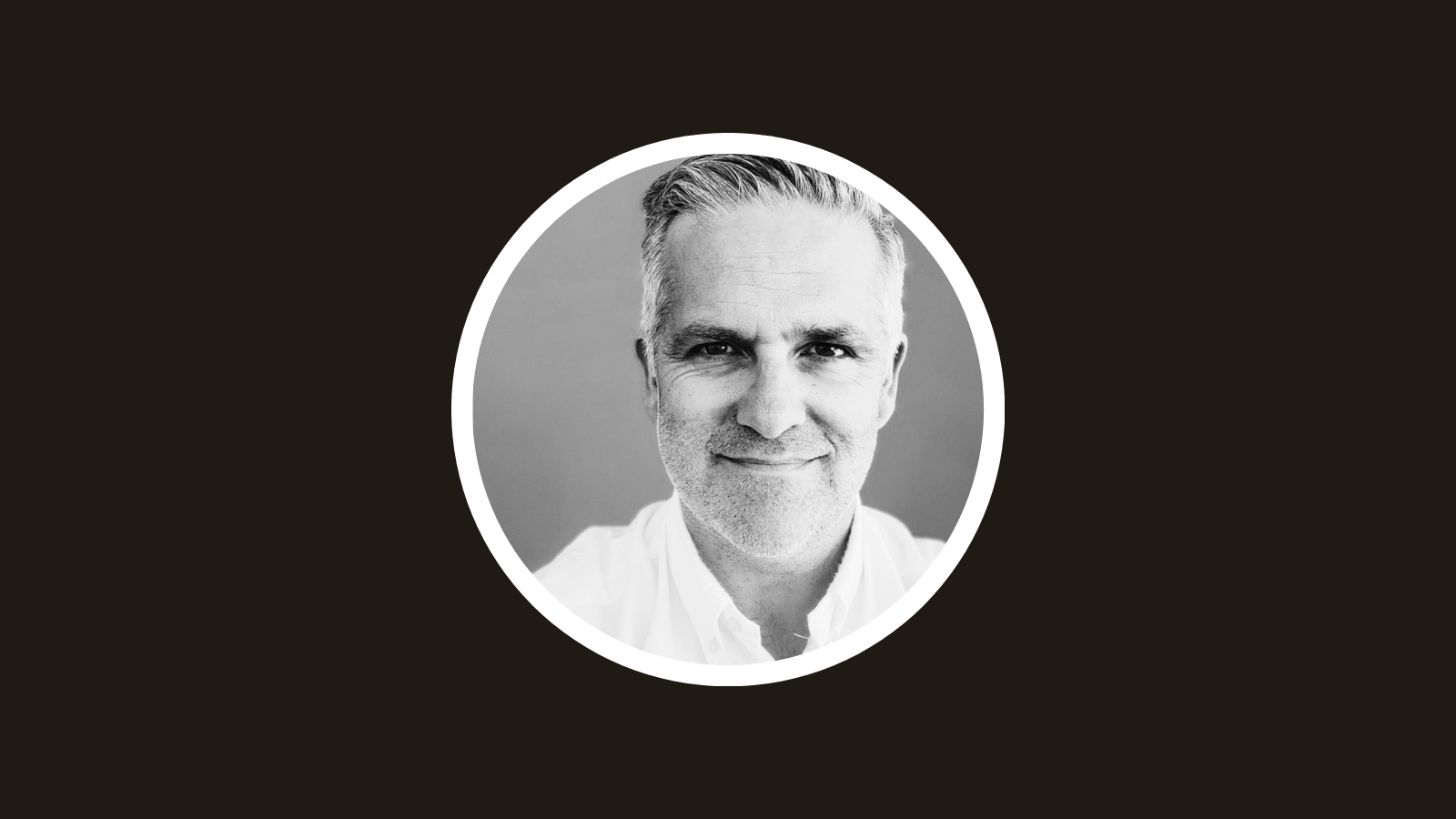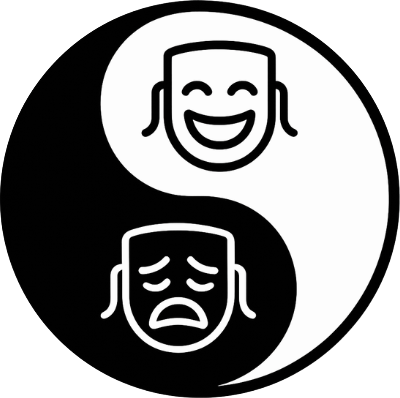#Verified: Richard Fryer
Richard Fryer is one of the outrageously awesome people we've had the pleasure of meeting since commencing our MPhil at the University of Queensland's School of Sport Sciences (more on this here).
A registered psychologist in both Australia and the United Kingdom, Richard specialises in high-performance sport, from water polo to skeleton to archery – where he's now Archery Australia Inc.'s National Lead – to almost everything in between. Adding another string to his bow (we couldn't resist 🤦), Richard also acts as the Senior Cognitive Performance Specialist for the Royal Australian Air Force. All this to say, he knows a thing or two about performing under pressure.
Here, we speak to Richard about Acceptance Commitment Therapy, auditions, and his personal peak performance practices.

Your journey to becoming one of Australia's most in-demand sport psychologists wasn't exactly linear. Can you highlight a few of the key moments that got you here?
Richard Fryer: I was living two parallel lives that I eventually brought together. The first one was I was in the corporate sector, working in human resources in big global organisations in financial services, telecoms, utilities... Which was great. I enjoyed that. But in parallel, I became a rowing coach. This was when the Sydney Olympics happened, and I remember watching Steve Redgrave win his fifth Olympic gold medal in the rowing events and going, "Right, this is a sport I want to have a go at".
So, I got involved in rowing immediately off the back of the Sydney Olympics – [first] rowing myself, then quite quickly into rowing coaching, qualified as a rowing coach, and set up my own rowing club [Leeds Rowing Club, now one of the biggest, most successful clubs in the north of England] because there was no club near enough to me.
And so, I had that sport coaching thing, but then I always had this fascination with psychology from my time in the corporate sector, working with leaders and coaching people in that world. Eventually – particularly after moving to Australia – I gradually brought those two worlds together.
Acceptance Commitment Therapy (ACT) is a framework you've used in various high-pressure contexts. Could you give us a TL;DR summary?
RF: The first thing to say is that ACT practitioners call it "act", not "A.C.T.", because it's about action. If we distinguish ACT from what people might be more familiar with, which is, when people talk about therapy, they're usually talking about cognitive behaviour therapy [CBT]. And the simple version of that says, if there are things I want to do that maybe I'm not doing, then the blockage to that stems from things inside me – my thoughts and my feelings. So, the traditional approaches say, "Let's improve the quality of your thinking". If you're being too negative in the way you're thinking, let's think about how you might be a bit more positive. Or maybe you've got too much anxiety, so let's give you some strategies to resolve those problematic emotions. The idea being that if we work on fixing what's inside, your behaviours will improve, and you can do the things you want to do.
ACT flips that on its head entirely and says your inner world – your disruptive and problematic thoughts, your anxiety, depression, stress, etcetera – stem from the things you're doing or not doing. So, what ACT practitioners would say is, "Let's design and write down the life you want to live". We know that you're not doing all those things yet, but we design it and encourage little bits of behaviour. The "act" then becomes very important because it's the action that results in a resolution or change in the inner world experience.
Can you walk us through what this might look like in practice with your athletes?
RF: At the practical level, it might look like a pre-race routine. Typically, a more traditional approach [e.g., CBT] might be relaxation techniques or trying to manipulate your emotional state to get to an "optimal state" to perform. But ACT says we can perform in a multitude of states.
So, we'd work on describing the series of actions and behaviours needed to enable you to do what's important when the gun goes off, when the race starts, or whatever the nature of performance. It's very much about an awareness of the behaviours and actions necessary and then getting curious about what shows up for you preceding a major event. Because we're not saying that there shouldn't be anxiety, for example. We're acknowledging that anxiety isn't a bad thing – it's something that exists because, typically, we care about what we're about to do. Anxiety is a perfectly normal thing to have. So, in ACT, we're helping athletes prepare to have it with them along the journey rather than try and get rid of it before they start.
For actors, auditions are one of our high-pressure events. Hypothetically, what might you suggest to an actor ahead of an audition?
RF: The first thing I'll say before we jump into some ideas is not everything works for everybody. This isn't the thing you should do; this is an idea about the kinds of things you can do.
There are six core processes in ACT, and at least two of them could be relevant to the situation we're talking about. One is the skill of "defusion" – this idea of creating a distance or a perspective to disconnect yourself from your thoughts. The second is "acceptance" – the willingness to have difficult emotions without having to resolve or get rid of them.
One of the defusion activities I like is giving your mind a name. If I'm having difficult thoughts – self-critical thoughts, doubtful thoughts, etcetera – instead of just having the thoughts, which is me thinking and we think in our own voice so we believe it's true because it's us, we give our mind a name. You can call it George or Bob or whatever you want. And now, whenever I have a thought, I attribute it to my mind. It's now not me having the thought that "I'm going to suck at this". It's George ... That allows us to create a little bit of space – a little bit of psychological wiggle room – between us and our thinking. This can make it easier to focus on meaningful action despite difficult thoughts.
Then, what I find is one of the best acceptance activities is what we call "dropping anchor". Dropping anchor comes from imagining we're a boat in a storm. The storm is our emotional experience, and we're on the boat. And you know what? We can't stop the storm, but we can drop anchor. Essentially, it helps us become connected to our body and what we're experiencing rather than turning away from that. This might be just feeling the pressure of my feet on the floor, having a sip of water and feeling that, [or] seeing cars passing out on the street and that life is carrying on. Dropping anchor is about expanding our awareness beyond our discomfort so we feel more able to take action with discomfort present.
I [also] think a lot of people find value in asking, "What's important now?". I could walk out of this room and not go into the audition, and my stress and worry would go away. [But] it would be replaced with guilt, resentment, and self-criticism very quickly afterwards. So "What's important now?" simply reminds me why I'm here and how this connects to my value system and goals. That doesn't mean it's easy; it just means I'm able and willing to persevere with something difficult because it's important.
The final thing I'd say is this idea of the past, the present, and the future tends to resonate well with people. Another process of ACT is getting present in the here and now through connection to our senses. When people tend to get stressed or worry, they notice that they're in the past or the future ... and none of that is real. It's just our mind doing what it does really well, which is connecting things to make patterns and predictions about the future based on past experiences. As long as we know that that's what our mind is doing, this cyclone can come, I can ground myself in the now, and do what I know how to do.
Given you're already an industry leader, why take on something as giant as a PhD?
RF: When you work in psychology, you're obviously trained to look at evidence-based practices, and you spend your life looking at other people's research. [But] I had a moment where I was like, "Hang on, I want to do my own research as well!".
I have a fascination with this thing called "psychological flexibility" – which, for the uninitiated, is the idea of being able to persist, change, or adapt what you're doing as the situation or context changes in the pursuit of your goal. Most of the research in that area has been done in clinical realms, and maybe a little in organisational psychology, but not so much in sports. So, there was a bit of vanity in me that said, "Maybe I can become the expert in this!". I played music growing up, and maybe there's still a little bit of the performer who likes to be the centre of attention!
With the demands on your time and energy as they are, do you have routines or practices that ensure your own peak performance?
RF: I should say what I don't have – I don't set goals, and I don't get caught up in self-doubt and overthinking. I'm pretty able to focus on what I need to do, do it, and then move on to something else. So, the only thing that I really do by design is dog walking and exercise. I know that if I don't do that, I get scattered and stressed. And drink water. Drink water and walk the dog!
Richard's qualifications: BA (Hons) Psychology, Master of Psychology (Sport & Exercise), current Doctor of Philosophy (Sport Psychology & Coaching) Candidate.
Big props to Richard for his time. You can learn more about Richard's work here and say hello on Instagram or X. If you do reach out, be sure to let him know you're from the Dojo 👊
